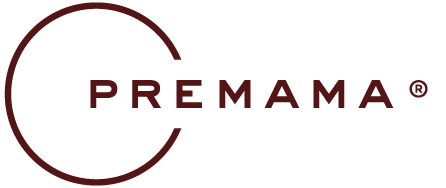If you and your partner are trying to conceive, you're likely doing everything you can to boost your chances of getting pregnant. When it comes to fertility, much of the focus is on female fertility. However, male fertility also plays an essential role in any conception plan. The vitamins and minerals that you incorporate into your diet may have a significant impact on your fertility.
Zinc in particular is a critical element for male fertility. Making sure you get enough of this key mineral may help improve sperm health and motility, hopefully improving your chances of conception. Here's everything you need to know about zinc for fertility and how you can boost your intake in simple, achievable ways.
The Importance of Zinc in Male Reproductive Health
Research shows that adequate levels of zinc are positively correlated with increased sperm quality. Men who have inadequate levels of zinc may struggle with lower quality of sperm, which is directly related to male fertility. By increasing their zinc intake, men may enhance their reproductive health.
There are a number of benefits of zinc for men. The key advantages may include higher sperm density and progressive motility. Zinc also plays a crucial role in enhancing antioxidant activity. Folate combined with zinc has also shown promising evidence of providing even stronger fertility support, though further studies are needed to better understand the relationship.
Recommended Zinc Intake for Fertility
To ensure that you're consuming enough zinc for your body's needs, it's important to consult the guidelines recommended by health experts. The recommended zinc intake varies based on gender and whether or not you're currently pregnant. For women who are not pregnant, the minimum requirement is 8 milligrams of zinc per day. Pregnant women, on the other hand, need at least 11 milligrams of zinc each day. The general guideline for men is a minimum of 11 milligrams of zinc on a daily basis.
If you have a zinc deficiency, you may need to take more than the recommended amount. Be sure to consult your physician to ensure that you're taking the appropriate amount of zinc for your needs.
Zinc-Rich Foods and Supplements
If you're looking to boost your zinc levels, there are various foods you can incorporate into your diet. Below are some examples:
- Oysters
- Beef
- Pumpkin seeds
- Turkey breast
- Eggs
- Sardines
- Lentils
- Cashews
- Sunflower seeds
- Shiitake mushrooms
- Lamb
- Hemp seeds
If you're a woman trying to get pregnant, it's important to be cautious about your seafood consumption. Although fish is an excellent source of zinc, certain varieties contain high levels of mercury, which may cause damage to your developing baby's brain. However, consuming small amounts of seafood with low mercury levels is unlikely to lead to any complications. Examples of seafood with low mercury include cod, salmon, trout, sardines, shrimp, oysters, flounder, scallops and black sea bass.
In addition to eating more zinc-rich foods, it may be helpful to take a daily supplement. This is especially important for pregnant women who are unable to get their recommended zinc intake from seafood. Before purchasing a zinc supplement, confirm that the dosage matches the dietary guidelines for your gender. If you're unsure about anything, don't hesitate to talk to your doctor.
FAQs
Q: Can you take too much zinc while trying to get pregnant?
A: While zinc plays a key role in fertility, it is possible to take in more zinc than your body can process.
Q: What other vitamins are helpful for fertility?
A: To further support your fertility, we recommend eating foods that are rich in vitamin C. Research suggests that vitamin C may help boost sperm motility and quality.
Q: How do I know if I'm getting enough zinc in my diet?
A: Most Americans get enough zinc through normal diet and supplementation. Supplementation is good for most people but is highly recommended for vegans and vegetarians.
Boosting Fertility With Zinc Supplements
When it comes to enhancing both female and male fertility, boosting your zinc intake can go a long way. In addition to eating plenty of zinc-rich foods, be sure to find the right zinc supplement for your needs. Premama® supplements are specifically formulated to increase your intake of key vitamins and minerals, including zinc. To learn more about our products and resources and how they can support you on your pregnancy journey, feel free to browse our website today. *
*This statement has not been evaluated by the Food and Drug Administration. This product is not intended to diagnose, treat, cure, or prevent any disease.




